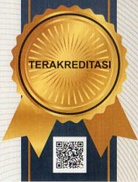Peran Moderasi Gender dalam pengaruh Attitude, Norm Subjective dan Perceived Behavior terhadap Food Intention: Uji Empiris terhadap Konsumsi Makanan Tradisional
Abstract
Keywords
Full Text:
PDFReferences
Ajzen, I. (1991). The Theory of Planned Behavior. Organizational Behavior and Human Decision Processes.
Al-Swidi, A., Huque, S. M. R., Hafeez, M. H., & Shariff, M. N. M. (2014). The role of subjective norms in theory of planned behavior in the context of organic food consumption. British Food Journal, 116(10), 1561–1580. https://doi.org/10.1108/BFJ-05-2013-0105
Arvola, A., Vassallo, M., Dean, M., Lampila, P., Saba, A., Lähteenmäki, L., & Shepherd, R. (2008). Predicting intentions to purchase organic food: The role of affective and moral attitudes in the Theory of Planned Behaviour. Appetite, 50(2–3), 443–454. https://doi.org/10.1016/j.appet.2007.09.010
B&lisle, F. J., & Bclisle, F. (1983). TOURISM AND FOOD PRODUCTION IN THE CARIBBEAN. In Annals of Tourism Research (Vol. 10).
Cheng, S., Lam, T., & Hsu, C. H. C. (2006). Negative Word-of-Mouth Communication Intention: An Application of the Theory of Planned Behavior. Journal of Hospitality and Tourism Research, 30(1), 95–116. https://doi.org/10.1177/1096348005284269
Duarte Alonso, A., Sakellarios, N., & Cseh, L. (2015). The Theory of Planned Behavior in the Context of a Food and Drink Event: A Case Study. Journal of Convention and Event Tourism, 16(3), 200–227. https://doi.org/10.1080/15470148.2015.1035822
Everett, S., & Aitchison, C. (2008). The role of food tourism in sustaining regional identity: A case study of Cornwall, South West England. Journal of Sustainable Tourism, 16(2), 150–167. https://doi.org/10.2167/jost696.0
Fornara, F., Carrus, G., Passafaro, P., & Bonnes, M. (2011). Distinguishing the sources of normative influence on proenvironmental behaviors: The role of local norms in household waste recycling. Group Processes and Intergroup Relations, 14(5), 623–635. https://doi.org/10.1177/1368430211408149
Hsu, F. C., Robinson, R. N. S., & Scott, N. (2018). Traditional food consumption behaviour: the case of Taiwan. Tourism Recreation Research, 43(4), 456–469. https://doi.org/10.1080/02508281.2018.1475879
Kim, S., Badu-Baiden, F., Oh, M., & Kim, J. (2020). Effects of African local food consumption experiences on post-tasting behavior. International Journal of Contemporary Hospitality Management, 32(2), 625–643. https://doi.org/10.1108/IJCHM-05-2019-0428
Komariah, K., R. A. R. B. A., N. M., L. B., M. T. (2020). The Antecedent Factor Of Tourists’ Intention To Consume Traditional Food. GeoJournal of Tourism and Geosities, 32(4), 1209–1215. https://doi.org/DOI 10.30892/gtg.3322440033--555599
Nosek, B. A., Banaji, M. R., & Greenwald, A. G. (2002). Harvesting implicit group attitudes and beliefs from a demonstration web site. Group Dynamics, 6(1), 101–115. https://doi.org/10.1037/1089-2699.6.1.101
Okumus, B. (2021). Food tourism research: a perspective article. In Tourism Review (Vol. 76, Issue 1, pp. 38–42). Emerald Group Holdings Ltd. https://doi.org/10.1108/TR-11-2019-0450
Pearson, D., Henryks, J., Trott, A., Jones, P., Parker, G., Dumaresq, D., & Dyball, R. (2011). Local food: Understanding consumer motivations in innovative retail formats. In British Food Journal (Vol. 113, Issue 7, pp. 886–899). https://doi.org/10.1108/00070701111148414
Rivaroli, S., Lindenmeier, J., & Spadoni, R. (2020). Is craft beer consumption genderless? Exploratory evidence from Italy and Germany. British Food Journal, 122(3), 929–943. https://doi.org/10.1108/BFJ-06-2019-0429
Sengel, T., Karagoz, A., Cetin, G., Dincer, F. I., Ertugral, S. M., & Balık, M. (2015). Tourists’ Approach to Local Food. Procedia - Social and Behavioral Sciences, 195, 429–437. https://doi.org/10.1016/j.sbspro.2015.06.485
Setyawan, A. (2016). Apakah Gender Bermakna pada Model Pembentukan Minat Berwirausaha?
Shin, Y. H., Im, J., Jung, S. E., & Severt, K. (2018a). The theory of planned behavior and the norm activation model approach to consumer behavior regarding organic menus. International Journal of Hospitality Management, 69, 21–29. https://doi.org/10.1016/j.ijhm.2017.10.011
Shin, Y. H., Im, J., Jung, S. E., & Severt, K. (2018b). The theory of planned behavior and the norm activation model approach to consumer behavior regarding organic menus. International Journal of Hospitality Management, 69, 21–29. https://doi.org/10.1016/j.ijhm.2017.10.011
Sims, R. (2009). Food, place and authenticity: Local food and the sustainable tourism experience. Journal of Sustainable Tourism, 17(3), 321–336. https://doi.org/10.1080/09669580802359293
Tikkanen, I. (2007). Maslow’s hierarchy and food tourism in Finland: Five cases. British Food Journal, 109(9), 721–734. https://doi.org/10.1108/00070700710780698
Tsai, C. T. S., & Wang, Y. C. (2017). Experiential value in branding food tourism. Journal of Destination Marketing and Management, 6(1), 56–65. https://doi.org/10.1016/j.jdmm.2016.02.003
Venkatesh, V., & Davis, F. D. (2000). Theoretical extension of the Technology Acceptance Model: Four longitudinal field studies. Management Science, 46(2), 186–204. https://doi.org/10.1287/mnsc.46.2.186.11926
Voon, J. P., Sing Ngui, K., & Agrawal, A. (2011). Determinants of Willingness to Purchase Organic Food: An Exploratory Study Using Structural Equation Modeling. In Agribusiness Management Review (Vol. 14, Issue 2).
White, K. M., Smith, J. R., Terry, D. J., Greenslade, J. H., & McKimmie, B. M. (2009). Social influence in the theory of planned behaviour: The role of descriptive, injunctive, and in-group norms. British Journal of Social Psychology, 48(1), 135–158. https://doi.org/10.1348/014466608X295207
DOI: https://doi.org/10.32487/jshp.v8i1.1925
Refbacks
- There are currently no refbacks.
JSHP: Jurnal Sosial Humaniora dan Pendidikan
is licensed under a Creative Commons Attribution-ShareAlike 4.0 International License (CC BY-SA 4.0)





